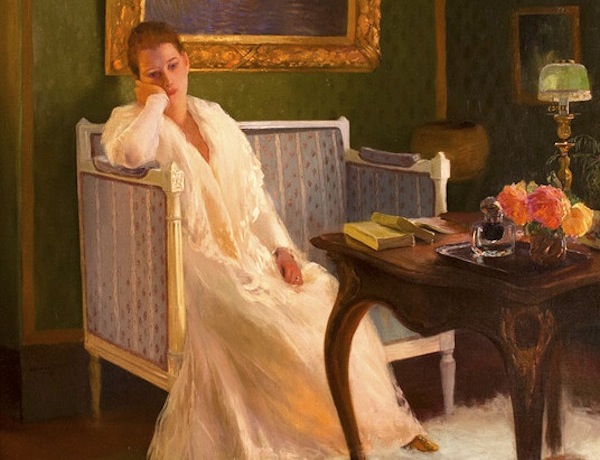【Marathi Archives】
2025-06-26 05:25:22
157 views
6365 comments
Reading’s Journey from Chore to Passion,Marathi Archives and Other News
On the Shelf

Gaston de la Touche, L’ennui, 1893.
- We begin with the decline and fall of the English major: Have our nation’s youth really found something better to do? “If our spring 2015 numbers follow the pattern of our recent death spiral,” one professor said, “we will have lost in four years twice as many majors as we gained in fifteen.” Another theorized that “many students who would prefer to declare humanities majors might be challenged or advised to declare a ‘practical major.’ ”
- But even those of us who threw caution to the wind and majored in English have not done such a hot job of pursuing literature in other languages. “About 3 percent of all the books published in the U.S. every year are translations. But the bulk of these are technical writings or reprints of literary classics; only 0.7 percent are first-time translations of fiction and poetry.”
- Still, shouldn’t we congratulate ourselves for living in an era when reading is regarded as a joy, a passion, rather than as a necessary, bland consequence of rhetorical culture? “For a long time, people didn’t love literature. They read with their heads, not their hearts (or at least they thought they did), and they were unnerved by the idea of readers becoming emotionally attached to books and writers. It was only over time—over the century roughly between 1750 and 1850—that reading became a ‘private and passional’ activity, as opposed to a ‘rational, civic-minded’ one.”
- Today, by contrast, we’re so in love with literature that one can earn seven hundred dollars a week simply by writing poems on the subway. And they don’t have to be good poems, either. (“Faint sweeps / Of sea breeze / In the light stream of / Water … ”)
- Most of us prefer to write in private—others of us have no choice. Anna Lyndsey has a rare illness that makes her skin burn whenever she’s exposed to light, even the light of an iPhone. She lives in darkness. She gets her news from the radio. She writes. “She found that, with practice, she could write in her head—marshal thoughts into sentences, arrange sentences into paragraphs—before writing longhand in a notebook. It was liberating, not being able to see her words on the page. Darkness, it seems, is also a cure for self-consciousness.”
Search
Categories
Latest Posts
How to Easily Make iPhone Ringtones Using Only iTunes
2025-06-26 04:26Got a PlayStation 5? Here are the first settings you need to tweak.
2025-06-26 03:17Microsoft is tired of Russian hackers' COVID
2025-06-26 03:05Q&A with tendercare founder and CEO Shauna Sweeney
2025-06-26 02:41Popular Posts
'The Last of Us' Season 2, episode 4: Why Ellie sings 'Take on Me'
2025-06-26 04:32'Freaky' is the cuddly body
2025-06-26 04:19Twitter launches its own version of Stories, calls it Fleets
2025-06-26 03:58Best vacuum mop combo deal: Save $140 on the Tineco Floor One S5
2025-06-26 02:56Featured Posts
Best headphones deal: Save up to 51% on Beats at Amazon
2025-06-26 04:34Lucky travelers got to view the total eclipse from an airplane
2025-06-26 04:22Elon Musk may have COVID
2025-06-26 02:41Bargaining For the Common Good
2025-06-26 02:39Popular Articles
Operation Mensch
2025-06-26 04:44Chelsea Clinton defends Barron Trump's right to be a kid
2025-06-26 04:42Did Trump forget about his TikTok ban? TikTok would like to know.
2025-06-26 04:30Dating app usage is changing for the better as the pandemic rages on
2025-06-26 04:29Contingent No More
2025-06-26 04:25Newsletter
Subscribe to our newsletter for the latest updates.
Comments (623)
Happiness Information Network
How to Squeeze the Most Out of Your iPhone's Battery
2025-06-26 05:22Information Information Network
How to eat sustainably: Foods that damage our climate the most
2025-06-26 05:18Star Sky Information Network
The death of a 17
2025-06-26 05:04Star Information Network
'Lego Star Wars Holiday Special' review: Don't call it a comeback
2025-06-26 04:59Wise Information Network
NYT Connections hints and answers for May 18: Tips to solve 'Connections' #707.
2025-06-26 04:52